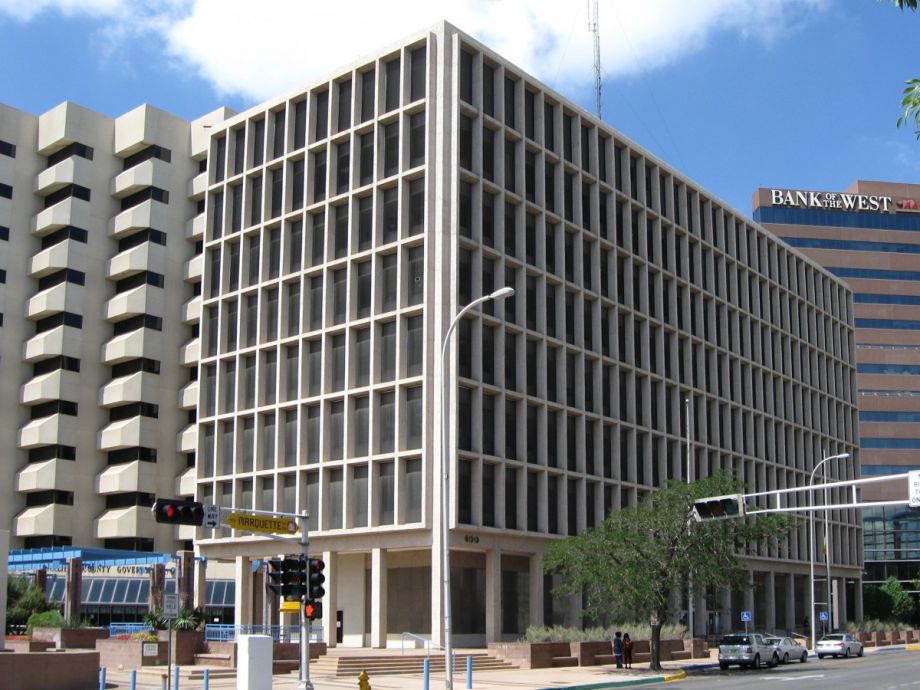Around four years ago, Gabriel Campos was on the outside looking in. He had an undergraduate degree in engineering, an MBA and a J.D, and 10 years of experience with New Mexico Legal Aid. But when he applied for a job with the city of Albuquerque, the silence was deafening.
“I never even got an interview,” Campos says.
Still, he felt the call of public service and civic duty so strongly, he applied to serve a term on the city’s Human Rights Board, an appointed commission that oversees implementation and conducts hearings under the city’s Human Rights Ordinance. That’s when he got the attention of the city, specifically Mayor Richard Berry, who handpicked Campos to serve instead as director of the city of Albuquerque’s Office of Diversity and Human Rights.
Berry wanted Campos to figure out how to make sure that qualified candidates wouldn’t slip through the cracks because of race, color, religion, sex, national origin or ancestry, age, or physical disability.
“I give him all the credit,” Campos says. “And I don’t forget that. I don’t forget there’s 10 other people dying to get in, dying to give us great work, and maybe they’re just not using the right words.”
Over the past year, as part of the Living Cities Racial Equity Here Initiative, Campos’ position has evolved to go beyond merely avoiding discrimination. His focus — and the city’s focus, he says —is now squarely on equity.
“It’s easy to stand back and say we don’t discriminate,” he says. “But it doesn’t mean everybody’s coming to the table. No discrimination means we’re opening the door for everybody. Equity means they’re actually walking in the door.”
Under the Racial Equity Here Initiative, Albuquerque is one of five cities to partner with Living Cities, a nonprofit dedicated to improving life for low-income people in cities, and the Government Alliance on Race and Equity, to consider how each may be reinforcing systemic racism through its own policies and practices.
“I think what’s important about this is, we’re going to take these dollars and we’re going to study ourselves,” Berry told me last year when the program was announced.
The city of Albuquerque decided to examine its own workforce demographics, comparing it to its overall metropolitan area. The Albuquerque metropolitan area is 42 percent white non-Hispanic, 47 percent Hispanic, 5 percent Native American, 2 percent black and 2 percent Asian.
“I’m born and raised in New Mexico, where we are trained at birth to believe we are a trilingual state, white, Native American, Hispanic,” says Campos, who grew up in the town of Gallup, New Mexico.
Overall, Albuquerque’s municipal workforce of around 6,000 was just about on par with the Albuquerque metro, according to the city. “But let’s not stop there and pat ourselves on the back,” says Berry.
They dug deeper, dividing the municipal workforce into five tiers based on compensation. The bottom two tiers were heavy on workers of color, and the third and second tiers were about on par with the metro demographics. The top tier, consisting of about 10 percent of the municipal workforce and its most senior policymakers, however, were way behind on equity — and much whiter than the metro area as a whole.
“It’s a terrible thing to say but it was somewhat expected,” says Mary Scott, the city’s director of human resources. “It sent a signal that we have a little bit of work to do. People are well aware of equality and the [Equal Opportunity Employment Commission], but when you come to racial equity it’s different. I think people have to get their heads around that.”
The path forward for Albuquerque includes more outreach to youth or young professionals of color, to help them understand what skill sets are necessary to move up in the public sector. Internally, Campos has taken on a lead role in helping Albuquerque city staff embrace racial equity principles. The city’s internal management training program, dubbed Public Service University, includes a three-hour session with Campos on discrimination and racial equity, and is mandatory for all staff who are on the management training track or are thinking about moving into management. Every three to six weeks, 15 to 30 staff members pile into a classroom, three to four to a table, and run through Campos’ interactive course on discrimination and racial equity, including examples pulled from local and national history.
“Departments put people into classes, based on who is interested in moving up as managers,” Campos explains.
He also offers an abbreviated version at new employee orientation. It’s not an ideal time for the deepest discussion given a full day of presentations on policies and benefits, Campos admits. “But it means something to the city,” he adds. “Somebody thought it was important enough for them to hear the words on day one: We are aspiring to equity.”
A few times a month, Campos even delivers some version of his discrimination and racial equity course to a business or other outside group, from the Hispano Chamber and airport concessionaires, to a national psychologists convention and even a national zookeepers convention that came through town recently.
Scott, meanwhile, finds herself thinking about decisions where it might make sense to apply a racial equity lens, like when the city switched to an all-online portal for job applications. Did they inadvertently make it harder for anyone who didn’t have easy access to a computer?
“I don’t really have the answer,” Scott says. “But it’s things like that, as we go forward with changes to technology or policy or other types of things, I think we need to put it through that racial equity focus.”
One change she can’t wait to announce: The city is “banning the box” — eliminating the question that asks job applicants if they have a criminal background. They have the authority to do it, she says. They’re waiting for city lawyers to draft a legal opinion to back them up. It’s a change she’s been waiting years to make.
Beyond hiring and promotions, the city is looking to apply the same lens to its procurement processes and its planning processes. They want vendors to be representative of the city’s true diversity too. In Campos’ classes, he’ll often bring up situations like where are current or potential bus routes and are they serving everyone equally, or are parks department resources being spent equitably.
“We know what census data looks like. We know what the demographics are of that neighborhood,” Campos says. “Are we choosing neighborhoods that are more affluent? That are more homogenous? How are we doing that?”
Berry’s office, led by Deputy Chief of Staff Corey Cooper, plans to introduce a policy that embeds their equity action plan into something that lasts beyond the current mayor’s administration. Berry’s second term ends later this year, and per his earlier pledge, he is not running for reelection.
Campos hopes to have the city’s racial equity dashboards up and running before the mayor’s term is up. He’ll need to be reappointed by the next mayor, and there are currently nine candidates in the mix for the top job. The dashboards would be something that would last into the next administration. Campos says Boston’s racial equity dashboards have served as an inspiration.
“It’s so important to understand our workforce in the city and now where we stand and where we need to make a difference. What this does is put the city in a leadership position as an organization,” says Berry. “Now we are doing what I think government can do, which is to set the example for others in the community.”

Oscar is Next City's senior economic justice correspondent. He previously served as Next City’s editor from 2018-2019, and was a Next City Equitable Cities Fellow from 2015-2016. Since 2011, Oscar has covered community development finance, community banking, impact investing, economic development, housing and more for media outlets such as Shelterforce, B Magazine, Impact Alpha and Fast Company.
Follow Oscar .(JavaScript must be enabled to view this email address)
















